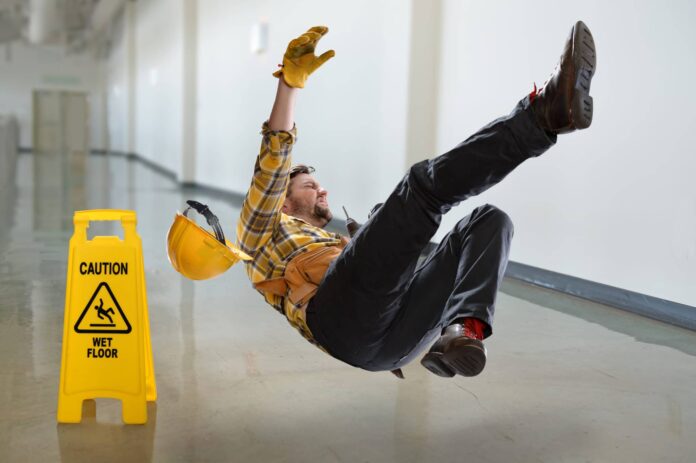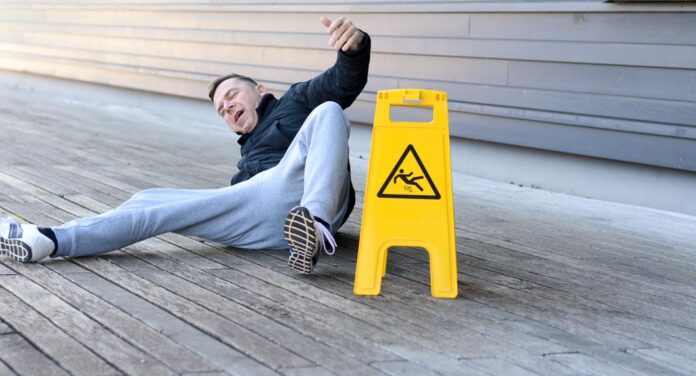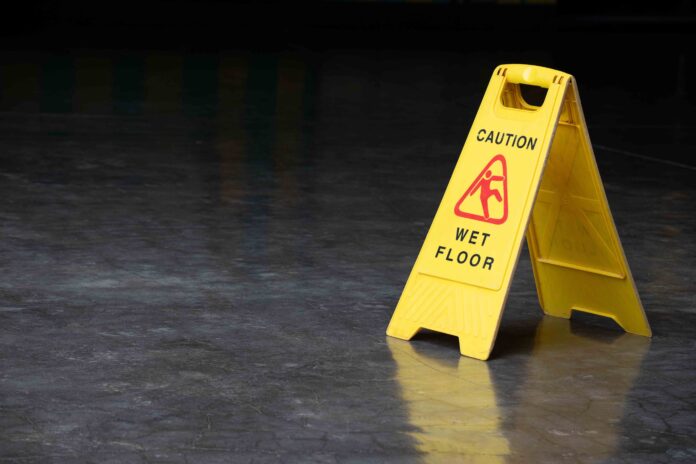One of the most common, and potentially the most dangerous of all, personal injuries, is the slip and fall accident. A slip and fall can come your way when you least expect it, especially under cold weather conditions when black ice is prevalent. One moment, you’re casually walking into a bread-and-butter store for a hot coffee, and the next, your feet have slipped out from under you on an icy concrete walkway. You’re on your back, paralyzed from the neck down for the rest of your life.
Says the legal professionals at the Chopin Law Firm, a slip and fall attorney, accidental falls occur every day. However, just because they are common doesn’t undermine the fact that they have become a major problem in the U.S. While some slip-and-fall accidents result in scrapes and bruising, others can result in terrible injuries like fractures, as well as permanent life-changing injuries such as brain trauma and paralysis.

Too many people are unaware of the dangers of slip and fall until the moment it happens to them or to a loved one. This is why it’s of paramount importance to become educated not only on the prevalence of slip and fall accidents but also the cost of them. If you do this, you will be more safety conscious, but you will also have an idea of your legal rights to compensation should a fall occur on a commercially owned property.
It’s with this in mind you might be asking yourself how you can go about avoiding a slip-and-fall accident in the first place. The answer? Look down at your feet. The footwear you choose to wear under any given condition could be the one preventative measure that can save you from serious injury or even death.
According to a recent report by the regulation and safety experts at Pig, wearing the right shoes at the right time will make a major difference. You might think of slip-resistant shoes and boots as a tool like any other that can make your job and your life a heck of a lot easier and safer. On the contrary, ill-suited and ill-fitting footwear can make your job far more difficult and more dangerous than it has to be.
In fact, footwear is said to cause around 25 percent of all industrial slip and fall accidents and injuries. The issues can vary from office employees who choose to wear smooth-soled dress shoes around production and manufacturing areas to selecting the wrong type of safety shoe or wearing boots on a construction job site with worn-out treads.
Here are some other important things to consider when selecting safe, slip-resistant shoes.

Know Your Environment
As you mull your footwear selection, it’s a good idea to know what can make the floor you tread upon slippery. Footwear that’s engineered to be slip-resistant in a damp, outdoor environment might not be effective enough on a manufacturing floor that’s coasted with chemicals and greasy, oily, overspray.
In the same vein, shoes constructed for restaurant or hospital employees who deal with food-based oils and water/liquids, respectively, might degrade fast due to industrial-grade materials and cutting oils.
The good news is that the slip-resistant shoe market has realized significant growth over the past decade. Footwear is not available for lots of different work settings. All you need to do is ask safety footwear designers and manufacturers directly for recommendations that match your unique needs and wants. It’s likely they will offer you the chance to test the footwear and get a real feel for how it performs in any given environment.
You Gotta Have Sole

Says Pig, no single tread design or pattern is actually better than another, even if shoe and boot manufacturers take advantage of a lot of marketing schemes to demonstrate how their tread patterns are safer than even the best off-road 4X4 tire. There’s nothing wrong with that, but it doesn’t mean you should ignore the features of a shoe that will make it slip-resistant, especially on the job.
It’s best to look out for soles that contain the following qualities:
They grip the ground or floor firmly. Keep in mind that very deep sole patterns or treads with lots of voids can make a shoe or boot feel unsteady and unstable.
The footwear should have “tunnels” that will channel oil or water away from the shoe’s bottom. For instance, when you step into a liquid, it’s naturally going to choose the path of least resistance. If the tread contains lots of pathways or channels to make this happen, it will provide a safe step. A fall due to slipping will be unlikely.
Circular grips that help with preventing hydroplaning work far better than triangular or square-shaped grips.
Know Your Limitations

Truth: No one single shoe design is entirely slip-proof. Just like gloves, safety glasses, earplugs, and other personal protective equipment, or PPE, required for your particular workplace, slip-resistant shoes and boots can help to improve safety and reduce hazards, but they don’t make you super-human. In other words, even if you’re wearing the best non-slip shoe possible, always be aware of your limitations.
Also, you need to be aware that shoes and boots aren’t going to last forever, even if they feel better when they get worn in. You need to bite the bullet, as it were, and replace them every so often. For example, if you’re a jogger who runs three to five miles per day, every day, in all weather conditions, you might want to purchase a brand-new pair of running shoes once per month.

The point is this: establishing a regular change-out schedule for your footwear will help ensure that your shoes don’t outlive their prime and become dangerous. Says a member of the ASTM Committee on Pedestrian/Walkway Safety and Footwear, you should consider replacing your shoes, work boots, or running shoes when two pennies can be placed on an area of sole that’s been ground smooth.
Footwear is an all-important part of your wardrobe. All too often, consumers think in terms of fashion as opposed to functionality and safety. But all it takes for a dangerous slip and fall that can leave you paralyzed from the neck down to occur is a pair of shoes that aren’t quite slip-resistant enough. When it comes to safe footwear for work or play, choose wisely.









